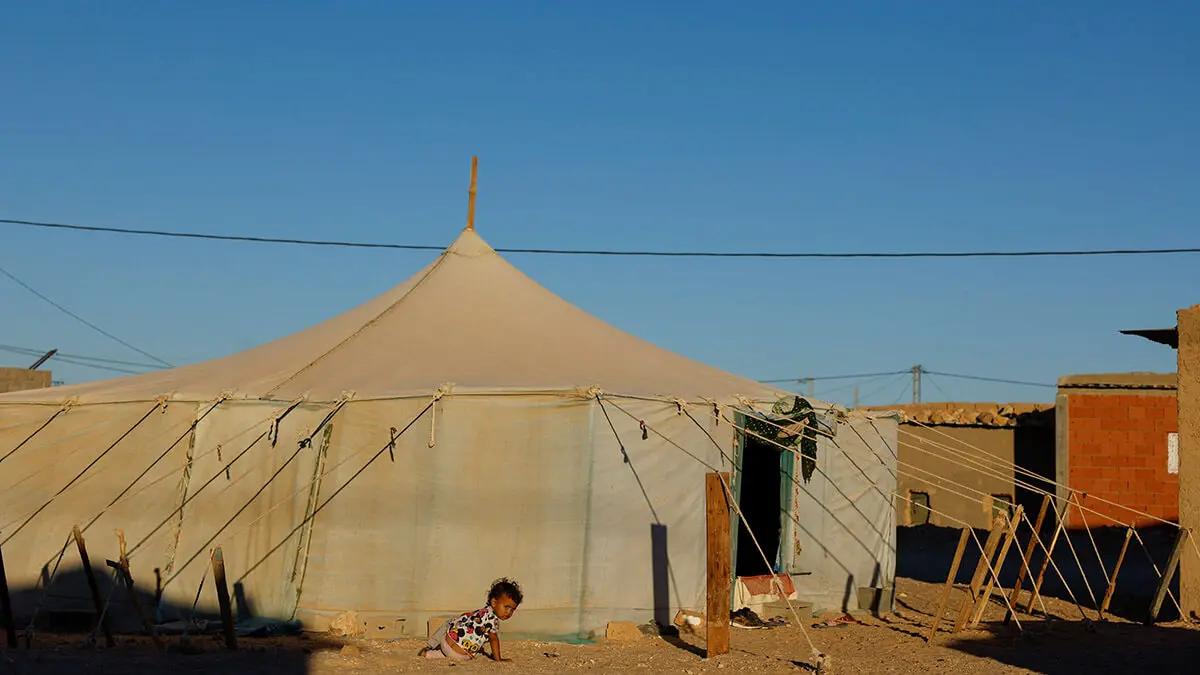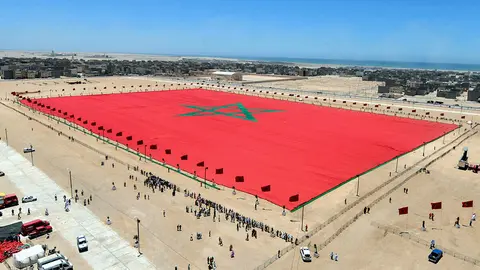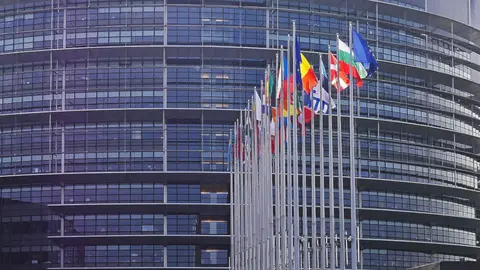Overcoming war, exile and the traumas of Saharawi society

- Introduction and preliminary acknowledgements
- The war and its traumatic consequences
- Exile as a tool of control
- The failure of the Polisario
- The Movement Saharawi for Peace: a real alternative
- Conclusion
Introduction and preliminary acknowledgements
Dear friends and brothers of the Movement Saharawi for Peace, Secretary General Hach Ahmed, notables of the Saharawi traditional authority, other authorities and assistants.
Before I begin, since I did not have the opportunity to do so at the time, I would like to thank the MSP and especially its Secretary General for the heartfelt and sincere tribute you paid to my father, Miguel Ortiz Asín, during your last conference held in Dakar at the end of 2023. Many of you, tribal notables, had known him for decades and he knew you well, there are many years of shared good memories. He also knew your parents, your family, he knew and respected your tribal affiliation almost as much as his own origins and whenever he could he was there to help you. That was how much he respected you, loved you and appreciated you, as many of you well know. So wherever he is, I'm sure he'll be proudly watching the path you are taking towards what he longed for so much: a future of peace and prosperity for all Saharawis. So once again, all I can say is thank you.
The war and its traumatic consequences
For decades, the Polisario Front has justified its existence on the basis of a narrative of armed resistance and victimhood that has permeated well, not only among its followers in Tindouf, but also among a large part of the media and politicians abroad, particularly in Spain. However, this strategy has proved to be a resounding failure. First the war, and then the perpetuation of the dispute, has brought nothing but suffering to the population, with thousands of victims, displaced persons and a collective trauma that has been passed down from generation to generation. The reactivation of the conflict in 2020, promoted by the Polisario itself, has only aggravated this situation, leaving a balance of victims and separated families even greater than what had already existed for decades.
By now we all know that its leaders have used this dispute as a tool to maintain their control over the Tindouf camps, with the particular benefits that this brings for them. Control over the humanitarian aid on which a population living in extreme precariousness depends is one of the most tangible examples. An example that demonstrates the reason for their way of acting when it comes to perpetuating this situation. Instead of seeking real solutions, the Polisario has artificially prolonged a state of conflict that benefits its leaders and their Algerian allies, while the rest of the population pays the price.
Exile as a tool of control
Today, the Tindouf camps are a symbol of their failure and of Algeria's complicity in the perpetuation of Saharawi suffering. For almost five decades, thousands of families have lived in deplorable conditions, without access to basic services and with few opportunities for development. This forced exile is not an accident, but a deliberate strategy.
For its part, Algeria has used the Saharawis as a tool in its regional rivalry with Morocco. Instead of proposing solutions, it hides behind a false neutrality, constantly claiming that it is not its concern. Meanwhile, Algeria has always provided military and political support to the Polisario, with the aim of prolonging the conflict indefinitely and maintaining its influence in the region. Meanwhile, the Saharawis remain trapped in limbo, with no prospects for the future and condemned to live in misery.
The failure of the Polisario
The Polisario Front has proven itself incapable of representing the real interests of the population it claims to represent. Its management has been so disastrous and incompetent that it has even worsened the situation of those interests. The governance of its leaders, carried out from a bunkerised, gerontocratic leadership far removed from reality, has been marked by corruption, lack of transparency and the repression of any dissent. In the Tindouf camps, an authoritarian one-party regime has been established where plurality of ideas is not tolerated and where any critical voice is silenced. Their way of understanding the world is far removed from what the needs of our time demand. Observing how they act is almost like travelling back in time to the depths of the 20th century, when, under the umbrella of the Cold War, they sought international shelter, which some granted them, ignoring that representativeness is not an eternal title and that it must be accompanied by accountability and a positive balance in the income statement. The Polisario Front has been in the red for too long, if the metaphor is valid.
Likewise, they are the ones who have wasted historic opportunities to reach a peaceful solution to the conflict. They have not been short of opportunities. Instead of seeking dialogue and negotiation, they have opted for a stubborn and obstinate strategy of confrontation that has pushed all parties to the limit of their patience, but especially their people. Its eternal submission to Algeria has limited its capacity for action and turned it into a puppet of Algerian interests in the region. This, added to its recent military fail
The Movement Saharawi for Peace: a real alternative
Faced with the failure of the Polisario, the Movement Saharawi for Peace (MSP) is emerging as a real and viable alternative. As we all know, the MSP advocates a peaceful and negotiated solution to this controversy, based on pragmatism and cooperation with Morocco to end this journey to nowhere once and for all.
The MSP represents a new generation of Saharawis who are seeking to overcome the stalemate in the conflict and build a more stable and prosperous future. Its moderate approach and commitment to dialogue make it a viable option for addressing the future and leaving behind the traumas of war and exile, guaranteeing the rights and dignity of all Saharawis.
The Moroccan autonomy proposal: a pragmatic solution
The autonomy proposal presented by Morocco in 2007 has been the subject of debate and controversy by some. However, its growing international acceptance indicates that it could be a pragmatic, realistic and more than viable solution to the conflict. This plan guarantees political, economic and cultural rights to the Saharawis, under Moroccan sovereignty, and has been endorsed by numerous countries as a path towards regional stability.
Although autonomy does not satisfy the independence aspirations of some, it represents a viable alternative to the current stalemate. Its implementation could put an end to decades of suffering and open up new opportunities for reconciliation and development in the region.
Conclusion
The Polisario Front and Algeria have failed, there is no going back. It is time to look for new ways that prioritise the real welfare of the population and not the particular interests of a few. The MSP together with the Moroccan autonomy proposal offer an opportunity to overcome the stalemate and build a more stable and prosperous future for the Saharawis. It is time to leave failed strategies behind and embrace realistic and pragmatic solutions.
Presentation made by Ignacio Ortiz, during the III International Conference for Dialogue and Peace held in Las Palmas de Gran Canaria on 27 February 2025.



